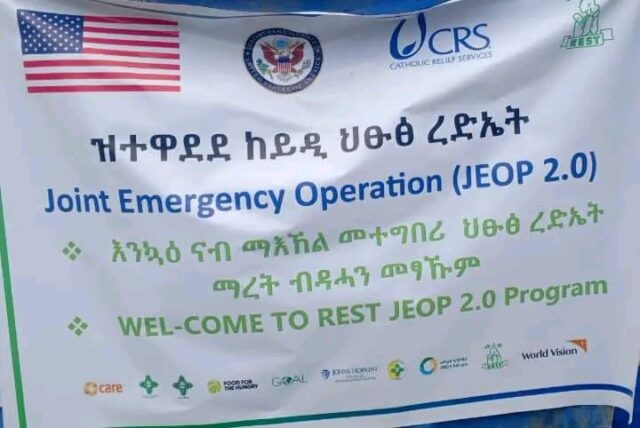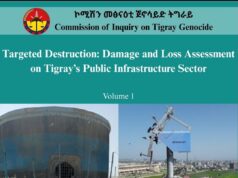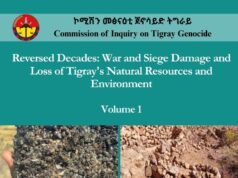Mekelle, August 9 (Tigray Mass Media Agency) – The prolonged drought in Yaqer, a remote vicinity in Kola Temben district of Central Tigray, continues to devastate lives and livelihoods, forcing residents to walk six hours to access limited humanitarian aid. The assistance, provided by Relief Society of Tigray in collaboration with Catholic Relief Services (CRS), has become a lifeline for many.
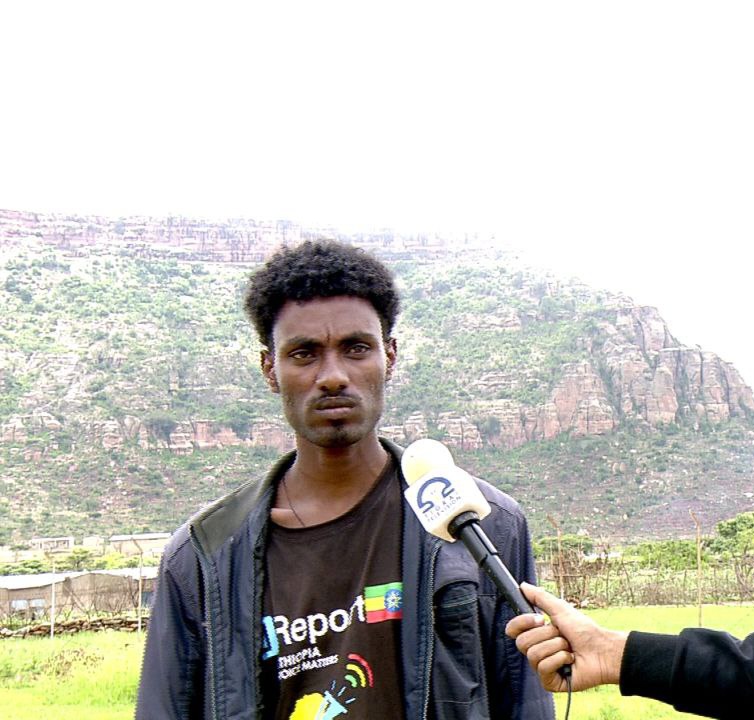
Families of the deceased recount their grief, saying they had lost loved ones solely because of the drought. Gebremedhin Niguse, a resident of Yaqer, states that their village is experiencing severe drought. “I lost my brother to hunger.” he claims.
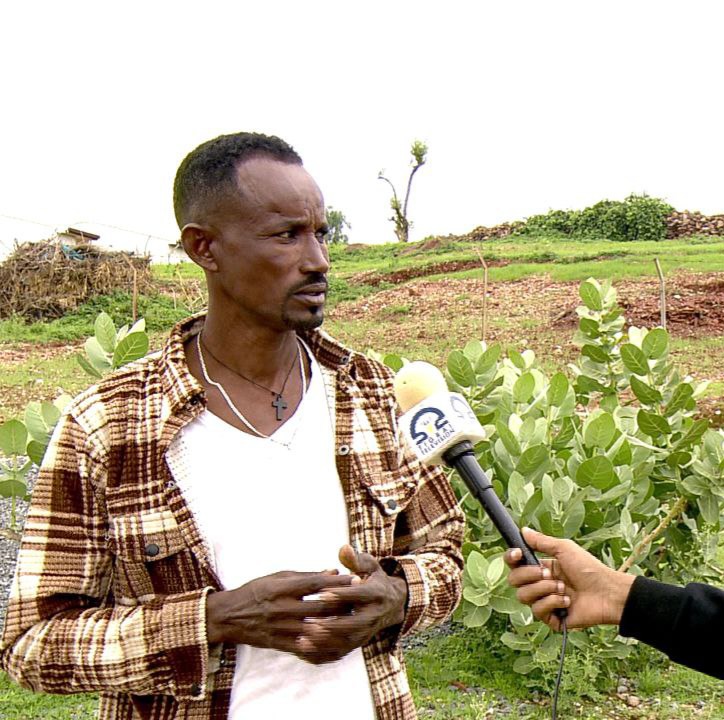
Similarly, Gebrekidan Niguse claims to lose his loved ones. “I lost my mother, Mamit Abrha. She died because of hunger associated with the drought,” he says, adding that his children have also suffered greatly from hunger.
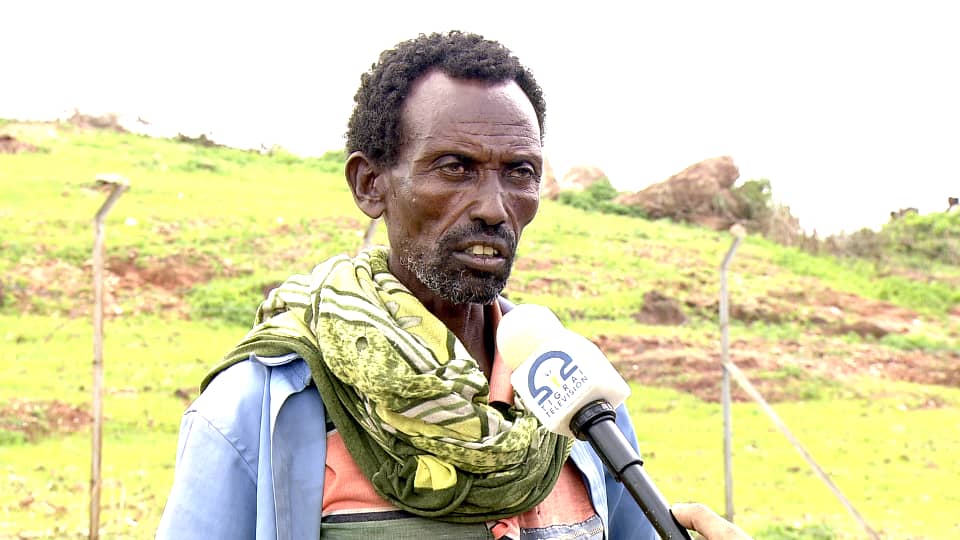
Another resident, Gebrehiwet Tamene shares that his father died from hunger and that the lack of road access made reaching healthcare impossible. “My father would have been saved had there been healthcare service in our village or else a road to transport him to neighbouring villages,” he notes.
Residents emphasize that the drought is not only endangering human lives but is also severely damaging livestock and the environment. Many have resorted to cutting down nearby forests to feed their livestock, causing further ecological harm.
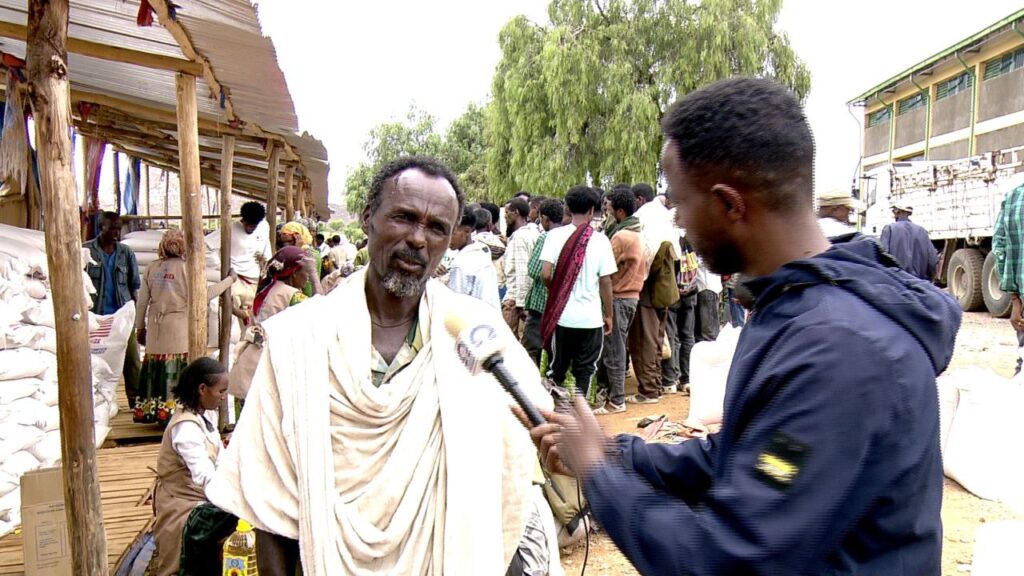
Desalegn Gebremariam, a resident in the area, says the drought has claimed the lives of both people and livestock. “I lost 25 livestock of my own,” he says.
The residents indicate to have walked from Yaqer to Guya, another location in the district, due to lack of access to road. “The journey, on top of hunger, is unbearable,” one resident notes. They appealed to authorities and humanitarian organizations to act urgently to save lives and to sustain relief efforts.
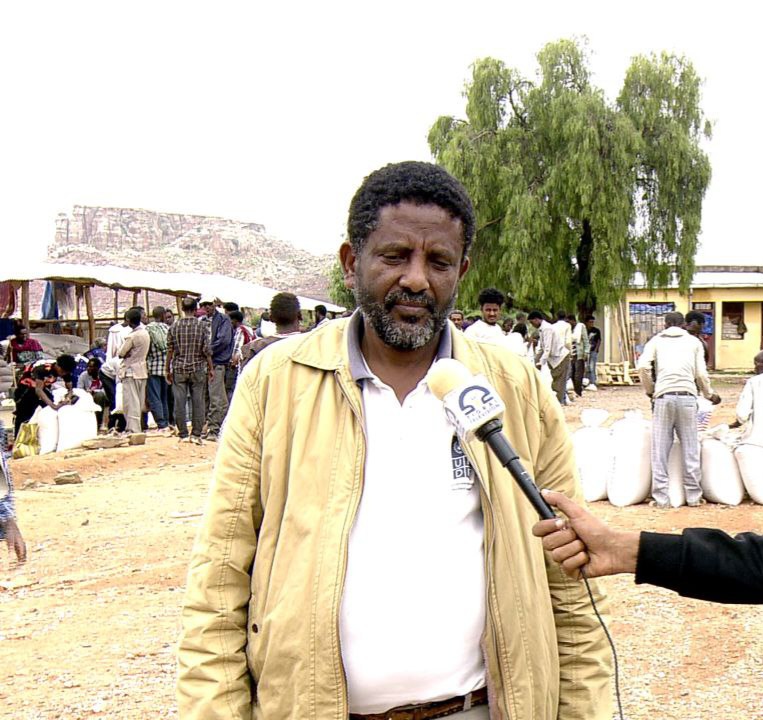
Administrator of Kola Temben district, Bahre Teklemedhin confirms that the disaster has already claimed the lives of 22 people and more than 27,000 livestock, rendering 700 hectares of farmland infertile. “These farmlands have been cultivated and sown three times, yet the land has yielded no crops each time,” he explains.
The administrator warned that the crisis is worsening. “Our study shows that the degree of destruction is increasing. Neighboring areas are also facing similar conditions, and they deserve equal attention,” he affirms.
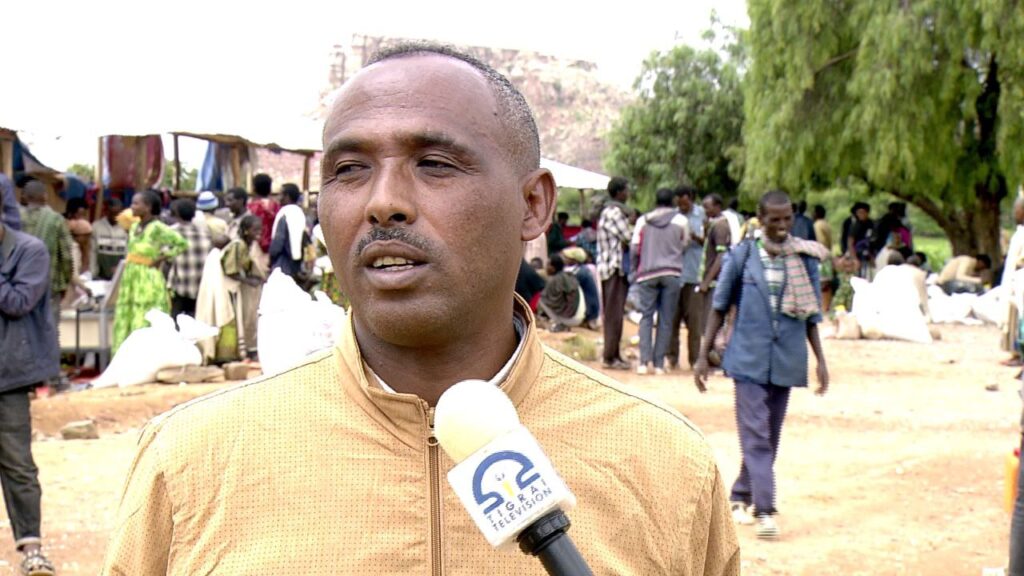
During the aid distribution, Public Relations Coordinator at Relief Society of Tigray, Gebrhiwot Gebru, urges donors to sustain and expand their support. “We will continue donating for 7 months,” he pledges. He also calls on other organizations to continue their assistance, as the need remains urgent.
Residents and local authorities have joined calls for both national and international humanitarian agencies to show solidarity with the affected communities and help mitigate the devastation.





